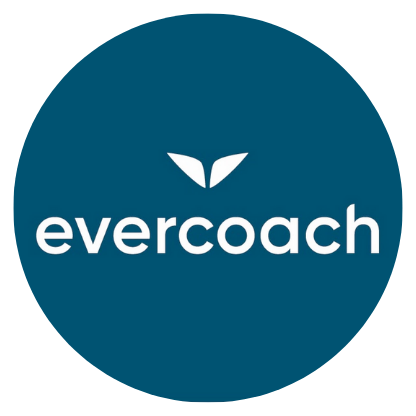Discover the secrets that have made Christine Hassler a successful coach for over 15 years - watch her video now!
Christine Hassler, keynote speaker and coach, shares her insights in the Evercoach by Mindvalley video, What Makes A Great Coach? Christine argues that being your own best client and listening more than talking are essential for successful coaching. She suggests that coaches should always have their own coach and use their own life as a laboratory, embodying the principles and practices they are teaching. Christine also encourages coaches to coach themselves by setting up two chairs and conversing between the two roles. Additionally, she stresses the importance of creating a safe space for clients to feel seen and heard. Finally, she advises coaches to coach, coach, coach in order to improve their skills.
Learning Outline
1. Be your own best client by having a coach and coaching yourself using two chairs.
2. Stop talking and listen more. Create a space where your client feels seen and heard.
3. Become a detective and a guide. Don't focus on giving answers, but focus on presence and holding space.
4. Coach, coach, coach to get better.
5. Ask questions that are for the highest good and don't make assumptions about what your client is telling you.
Instructional Content
When it comes to coaching, being successful is about more than just achieving external success. It’s about having the internal growth and development necessary to stay in integrity with the principles and practices you’re “selling” to others. To be successful as a coach, you must be your own best client. This means having a coach and using that coach to help you beat imposter syndrome. It also means coaching yourself, which you can do by setting up two chairs and talking to yourself from both perspectives. In addition to being your own best client and coaching yourself, successful coaches also need to listen more and talk less. As a coach, your primary job is to create a safe space for your clients and to be fully present with them. You don’t need to have all the answers or be able to give them the perfect advice. Instead, trust that the right thing to say for their highest good will come through. By taking these steps, you will be on your way to becoming a great coach and achieving both internal and external success.
Leadership
As a leader, it is essential to develop the skills necessary to coach, lead with integrity and trust, and have courage and perseverance. The video and transcript discussed above provide an excellent starting point for developing these skills.
When coaching, it is important to be your own best client. This means having a coach for yourself and embodying the principles and practices that you are teaching others. Also, it is important to create a space in which your clients feel seen and heard. This can be done through active listening, asking questions and creating a sense of safety.
When it comes to leading with integrity, trust and courage, it is essential to always be walking the talk. This means practicing what you preach and not being afraid to take risks. Additionally, it is important to remember that leading with integrity means being authentic and taking responsibility for your actions.
Finally, when it comes to perseverance, it is important to remember that success does not come overnight. Instead, it requires dedication and hard work. It is important to stay motivated and focused on the long-term goal, even when things get tough.
Overall, developing leadership skills requires hard work, dedication, and a commitment to integrity and trust. By following the advice provided in the video and transcript above, leaders can develop the skills necessary to be successful.
Coaching
Having a great coach is essential to upskilling yourself to achieve personal growth and professional development. This is, in part, because great coaches help to create a safe, non-judgmental space that allows individuals to explore their thoughts, feelings, and behavior, and to work with them in order to make positive changes. The video, “What Makes A Great Coach?”, provides insight into how to become a great coach.
The video features Christine Hassler, who emphasizes the importance of becoming your own best client. This means that, as a coach, you should practice what you preach by having a coach of your own and engaging in coaching practices. For example, she suggests setting up two chairs to coach yourself and to recognize that you don’t need to have everything figured out in order to be successful. Additionally, she talks about the importance of listening more and trusting that the right thing to say will come to you.
In addition to being your own best client and listening more, Christine Hassler also suggests that coaches remain in integrity by having private clients and continuing to coach one-on-one. This provides an opportunity to hone coaching skills and to gain experience. Moreover, she encourages coaches to engage in transformational, rather than transactional, selling. This helps to foster trust between coaches and their clients, and it emphasizes the importance of service.
From the video, it is clear that developing the skills to become a great coach takes hard work and involves learning how to be your own best client, listening more, and remaining in integrity. By following the advice provided in the video, coaches can become more successful in their personal growth and professional development.
Integrity and Trust
What Makes A Great Coach? is an informative video by Christine Hassler that proves invaluable to professionals who aspire to be successful coaches. The video highlights the importance of the coach’s personal growth and development and the need to be their own best client. It emphasizes how one must stay in integrity and use their life as their laboratory to evolve quicker. This is true for any professional striving to become a successful coach.
To upskill oneself and become successful in personal growth and professional development, Christine Hassler stresses the need to have a coach and to coach oneself. It is important for coaches to remain in integrity by having a coach and to get out of imposter syndrome by experiencing transformation within themselves. Coaches should use the tool of setting up two chairs and coaching themselves in order to assess the progress of their own growth and development. Coaches should also listen more and be present with their clients instead of providing answers.
Moreover, Christine Hassler recommends that coaches trust that the right thing to say will come to them when they are present with their clients. Coaches should also ensure that any guidance, teaching, or advice they provide is for the highest good and not make assumptions about what their clients are telling them. By upskilling themselves, coaches can become more successful in personal growth and professional development.
Courage and Perseverance
Upskilling yourself in personal growth and professional development--which is what this video is all about--is a key component of success. Coach Christine Hassler's advice on the topic is particularly useful. She outlines three key strategies to become a great coach: be your own best client, stop talking and listen more, and coach yourself.
Being your own best client means having a coach and embodying the principles you want to teach. When you feel like an imposter, use coaching to give yourself proof that you can trust your own advice. Setting up two chairs, one for you and one for your "client," and then coaching yourself can be a powerful tool.
Listening is also essential when it comes to being a great coach. Create a safe space for your clients and be present with them. Talk less and focus on what they're telling you, without making assumptions. It's more about being with the client than giving them advice.
Finally, Christine Hassler emphasizes the importance of coaching others. It's not just about teaching, but about creating transformation. Experience is the best way to learn, so coaching others is key to becoming a great coach. Plus, it's the best way to beat imposter syndrome.
Upskilling yourself in personal growth and professional development is all about developing the skills you need to become a great coach. Christine Hassler's video, "What Makes a Great Coach?" provides a useful framework for understanding what it takes to become a successful coach. From being your own best client, to listening more and coaching others, self-improvement can be a powerful tool for personal growth and professional development.
For Learners
Watching this video by Christine Hassler, What Makes A Great Coach?, is essential for life-long learners who are looking to become successful coaches. By learning the strategies that Christine shares, you can increase your evolution quicker, beat imposter syndrome and create a sustainable career.
There is a positive benefit to watching this video. Learning how to become a successful coach and walking the talk through integrity and service, you will be able to create transformational, not transactional, relationships with your client. You will discover how to be your own best client, develop empathy, create a safe space for your client, and provide the highest good for each client.
On the other hand, if you don’t watch this video, you will miss out on the opportunity to learn about the importance of having a coach for yourself, coaching yourself, and becoming a detective. You will also miss out on the tips on how to beat imposter syndrome and create a sustainable career.
Using the ‘what’s in it for me’, ‘what’s in it for them’, ‘what’s in it for us’, and ‘what’s in it for the world’ approach, you will benefit personally and professionally by watching this video. For you, you will gain the knowledge and tools to become a successful coach. For your clients, they will receive the highest good and transformational relationships. For us, the coaching industry will be enriched and strengthened. And for the world, people will be empowered to reach their goals and create their own success.
For Employers
By watching this video and learning the content within, employers benefit from gaining a greater understanding of the fundamentals of being a great coach. Employers and their teams can differentiate themselves from computers by understanding the human side of communication, listening, and empathy. Customers and clients will perceive employers and products more successfully if they know that the employer values the concepts of coaching, and that they use it in their daily operations. In fact, the power of coaching can help build relationships and increase sales by providing customers with a personalized experience, as well as helping employers build a more successful team. By using the what’s in it for the present, the past, and the future approach, employers can benefit from learning the content of this video in order to create a better and more successful business. Employers can use the concepts of coaching to build a team atmosphere, create relationships with customers, and ultimately increase sales. The concepts of coaching can help employers and their team differentiate themselves from computers, and help them create a successful and profitable business.
Career Path
Completing a course in Leadership based on the competencies of Coaching, Integrity and Trust, and Courage and Perseverance will help someone’s career path in countless ways. Leadership is an essential skill needed for any job, and having these competencies will give someone an edge in the job market. With strong coaching, integrity, trust, courage and perseverance, one can become an effective leader in their chosen field.
By watching the video and reading the transcript, one can gain insight into how to become a successful coach. In order to become a great coach, it is important to be your own best client, to listen more and to trust in your own ability to create transformation. It is also essential to have a coach and to coach yourself, as this will help to eliminate imposter syndrome and increase your own integrity.
By leveling up with this video and transcript, one can acquire the knowledge and skills they need to become a more employable, promotable and purposeful individual. With these credentials, one can close the Skills Gap and be better prepared for the high demand, high growth industries of the future. With strong persuasive language, one can reach out to lifelong learners and help them gain the income-producing skills they need to find meaningful work.
Meaning
"Your life will be full of lessons." This quote, said by Mona to Christine Hassler, is a powerful reminder of the journey of life that all of us must take as we learn, grow, and develop. This quote is especially relevant to those looking to become coaches, as they must face the challenge of becoming their own best clients, being present with their clients, and listening more than talking. It is essential for a coach to have the courage to face their own journey of growth, and to be willing to learn from their mistakes and successes. By doing so, a coach has the potential to help their clients reach their highest potential. This quote is a reminder that, as coaches, it is our job to be open to the lessons that life brings us and to use them to help others.
Takeaway
The most important key takeaway from this video is that the best way to be successful as a coach is to be your own best client, to coach yourself and to listen more than you talk. This will help you stay in integrity, create a safe space for your clients and trust that the right thing to say for their highest good will come through.











 11 Creds - Leadership
11 Creds - Leadership



